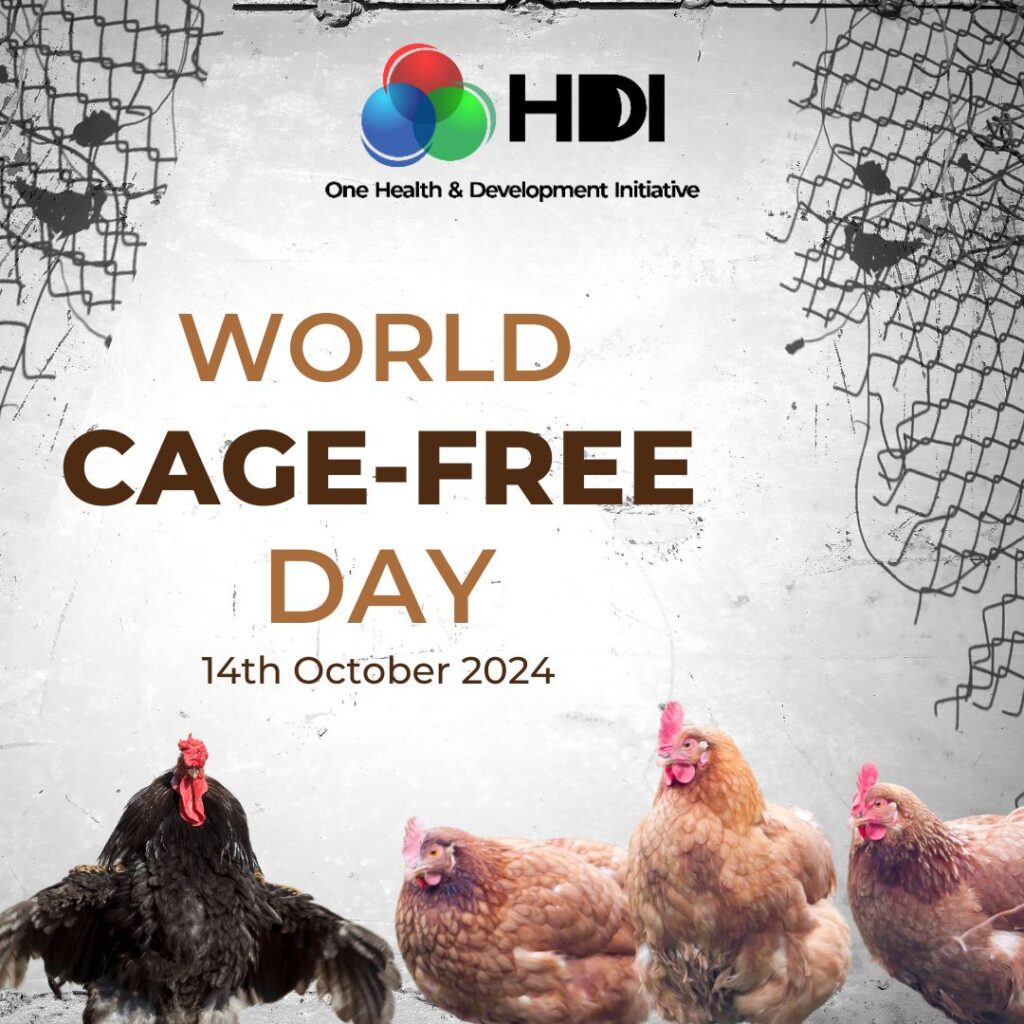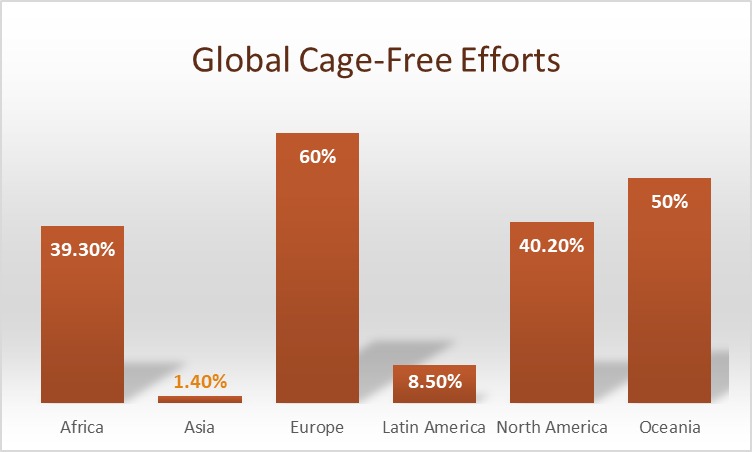
The call for more humane and sustainable practices in livestock farming systems grows stronger as agriculture continues to evolve. Among the growing global movements is the transition towards cage-free systems for laying hens, a housing system that integrates the welfare of hens in farming systems. Globally, hens are the most farmed animal, and their welfare is not given the necessary attention it deserves. World Cage-Free Day is set aside to increase awareness about the cruelty of caged systems and advocate for improved quality of life for hens.
Why cage-free?
At the heart of the cage-free movement is a concern for animal welfare. Traditional battery cage systems confine hens to restrictive spaces where they cannot exhibit natural behaviours like perching, nesting, and foraging. This confinement results in immense stress, often leading to poor health outcomes for the birds, including weakened immune systems, higher rates of disease, and physical deformities such as brittle bones.
In contrast, cage-free systems allow hens to engage in natural behaviours, reducing stress and improving their health. Like humans, hens perform better in certain conditions and environments than others. Cage-free systems provide hens with more enriched and optimal environments that align with the Five Freedoms of Animal Welfare, which emphasise the importance of freedom from hunger, discomfort, pain, and distress while promoting the freedom to express normal behaviour.
What are the global cage-free efforts like?
On the global stage, the cage-free movement is gaining momentum, with many regions seeing a rise in the number of hens transitioning out of cages. In an article by the Humane League, the following progress is highlighted across different regions of the world:
- Africa: 39.3% of egg-laying hens are cage-free, with South Africa leading the way.
- Asia: Countries like Bhutan, China, Indonesia, and Taiwan are making significant strides in adopting cage-free systems
- Europe: The EU has banned barren battery cages, and 60% of egg-laying hens are now cage-free
- Latin America: Brazil and Colombia are leading the charge, with major companies committing to cage-free policies
- North America: The US cage-free flock has grown to 40.2%, with ten states passing cage-free laws.
- Oceania: Australia and New Zealand have cage-free laws in place, with 50% of the region’s egg-laying hens already cage-free

Our Cage-free Efforts
Promoting optimal animal welfare is a major aspect of OHDI’s activities. Our preliminary study in Nigeria revealed a 60% prevalence of battery cages and highlighted poor animal and human welfare knowledge and practices. In response, we launched several initiatives to improve hen welfare and promote cage-free farming through stakeholder training, corporate campaigns, and public awareness programs.
In an ongoing initiative, we are promoting awareness of poultry welfare and cage-free farming in some selected states in Nigeria. With the support of trained veterinarian field officers, we are providing in-person and virtual training to farmers and other stakeholders on the benefits of transitioning to cage-free systems while sharing best practices for maintaining healthy, humane conditions. We have also taken this advocacy to the corporate retailers and have been building strong relationships and recording commitments from this end.
Additionally, we have created a hen welfare training guide, a comprehensive resource designed to provide systematic and holistic guidance, empowering poultry farmers and stakeholders across the poultry value chain. It emphasises the importance of hen welfare, the benefits of cage-free farming, and offers practical steps for transitioning to more humane systems, along with essential health and welfare guidelines for improved productivity.
Together towards a compassionate future
As we mark World Cage-Free Day 2024, it’s evident that cage-free farming is more than just a movement. It is the future of ethical and sustainable agriculture and a necessity for the future. The cage-free movement is a beacon of hope for animal welfare. By embracing these systems, we are improving the lives of millions of hens and also contributing to safer food, healthier ecosystems, and a more compassionate world.
Each of us plays a vital role in making cage-free farming the standard, whether by supporting ethical products, advocating for more robust welfare policies, or educating others about the advantages of these systems. Together, we can inspire meaningful change, creating a future where all farmed animals live in environments that respect their natural behaviours and well-being.
Happy World Cage-Free Day!





